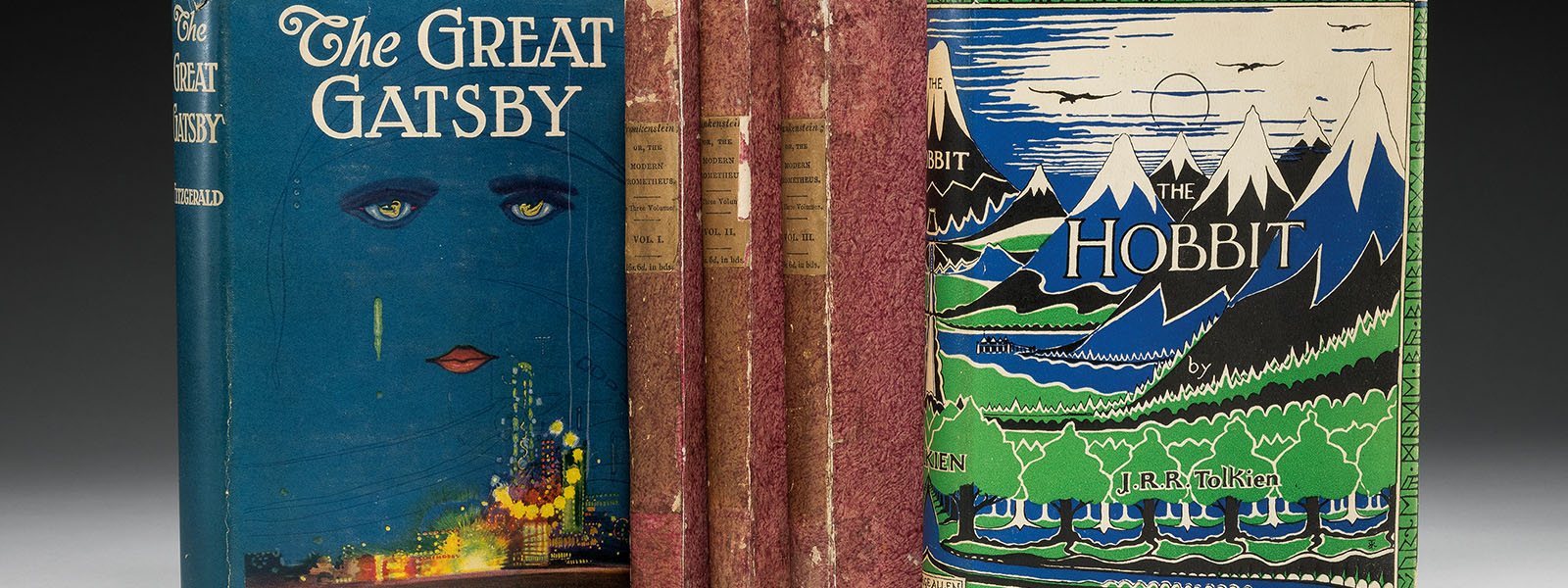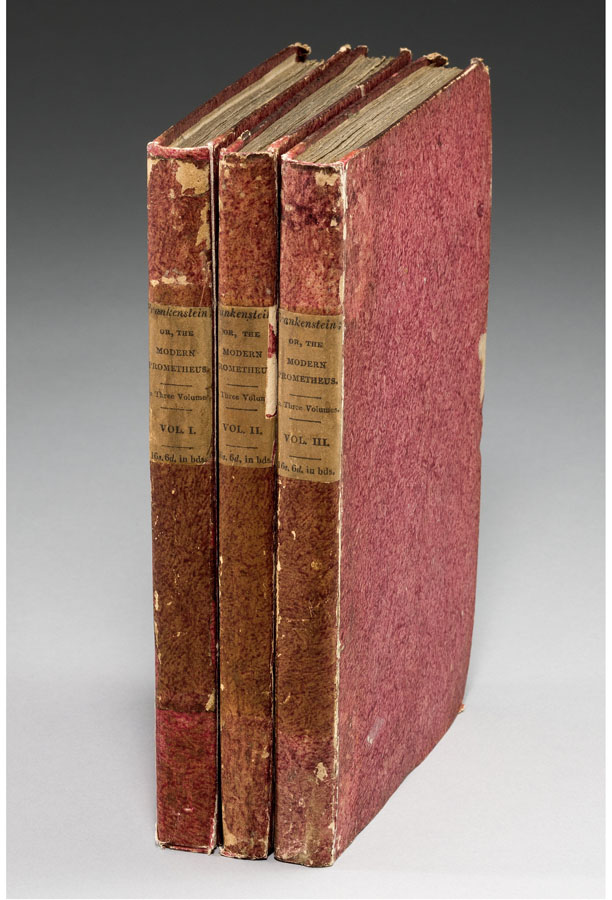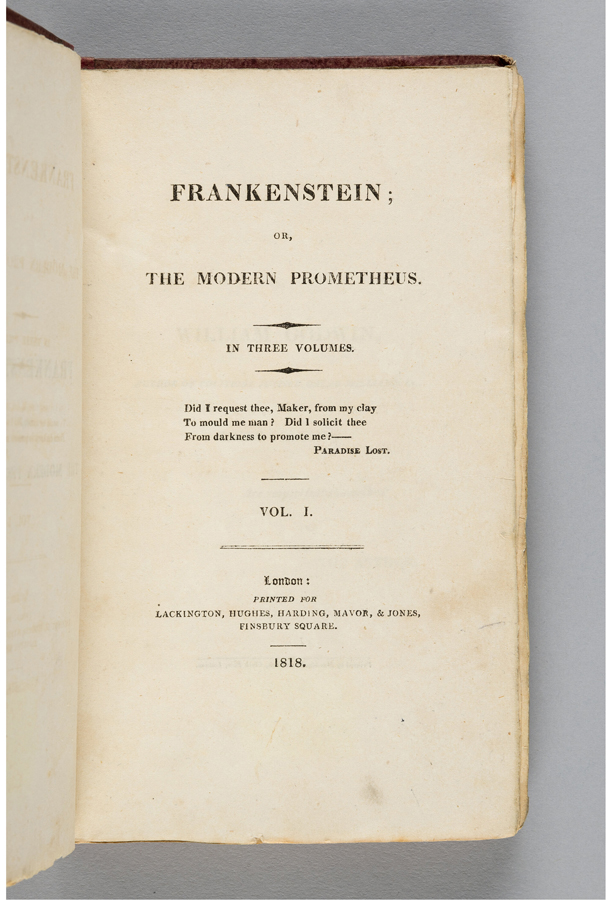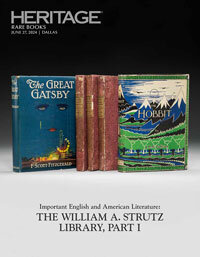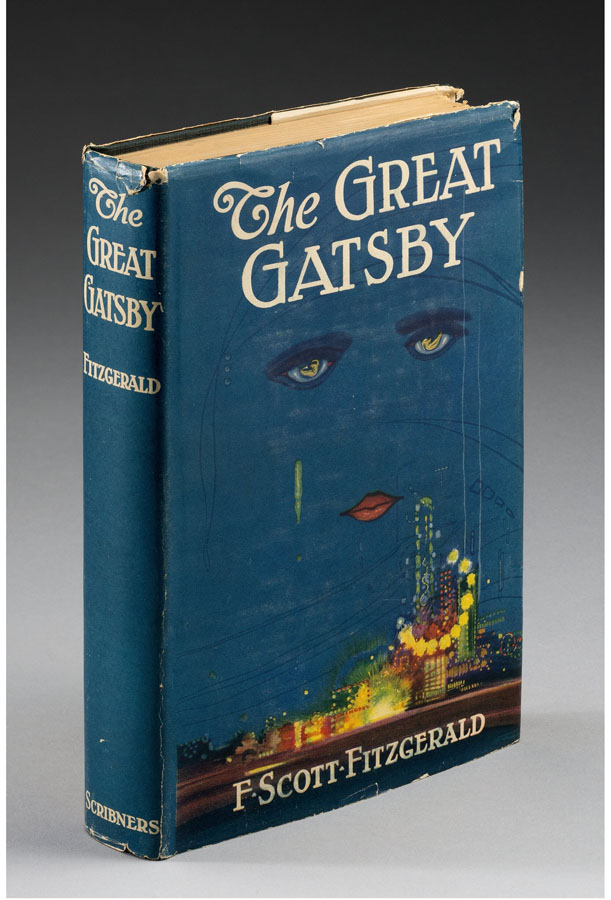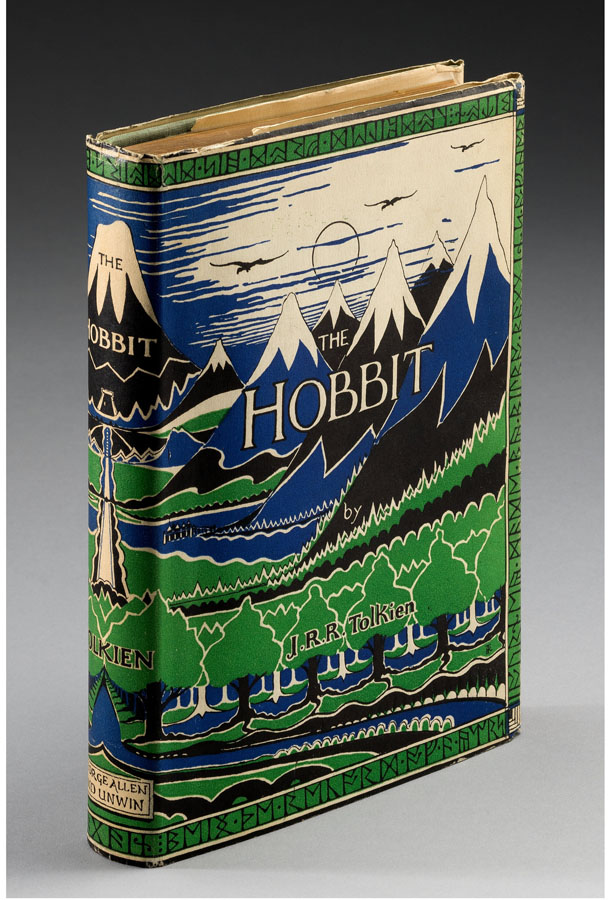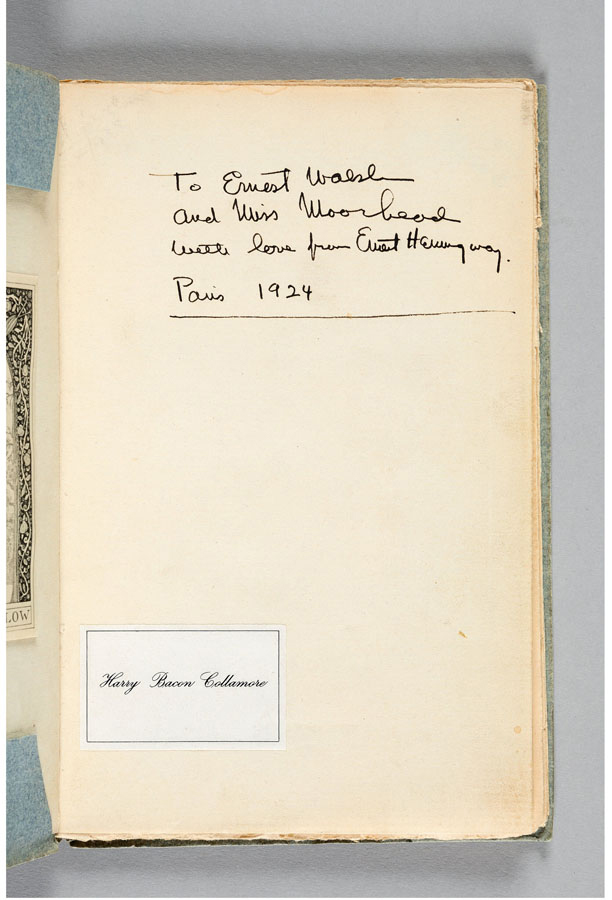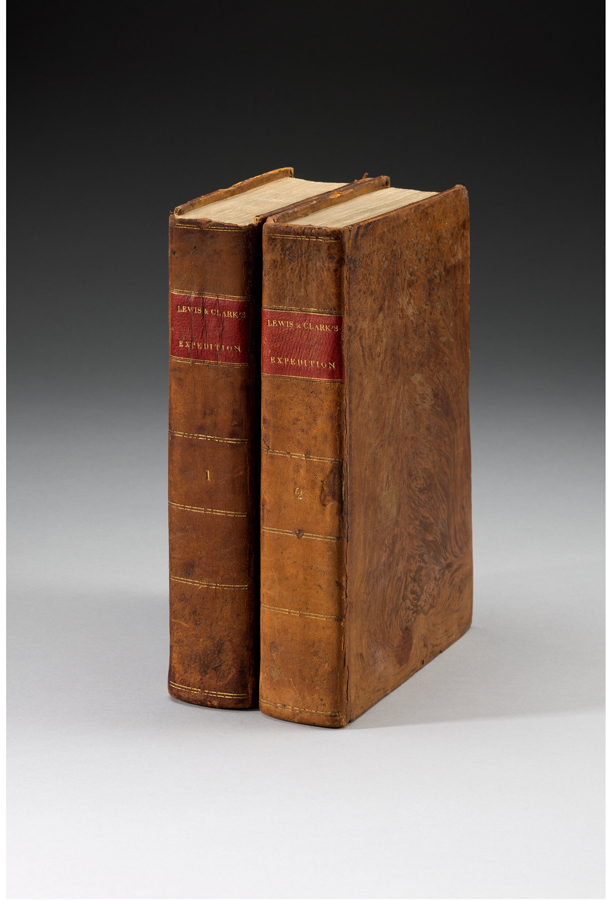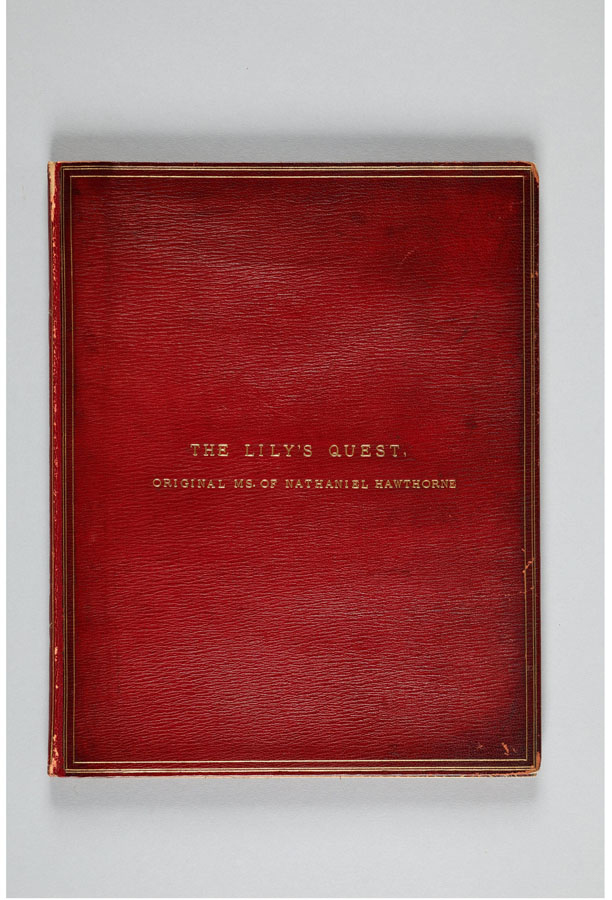FROM REMOTE NORTH DAKOTA, WILLIAM A. STRUTZ BUILT ONE OF THE FINEST PRIVATE LIBRARIES IN AMERICA
By Robert Wilonsky
A great library cannot be constructed – it is the growth of ages.”
–John Hill Burton, The Book-Hunter (1862)
William Strutz’s library consists of more than some 15,000 books – the result of a “lifelong labor,” the attorney’s hometown newspaper, The Bismarck Tribune, once noted. He began collecting books in college in the late 1950s, on subjects ranging from astronomy to psychology, religion to law, philosophy to history. Soon after, he began to focus on books of great literary significance, in superb original condition, and with important provenance. This accounts for the profusion of presentation and association copies found in his library, many of which are of great rarity.
The copy of Mary Shelley’s ‘Frankenstein’ in Strutz’s collection is one of only three known first editions in the original pink boards.
But Strutz wanted more than just a copy of the book itself. He sought out copies held by – touched by, gifted by, loved by – their authors. He wanted books presented from one notable to another. As a result, Strutz assembled “one of the most important collections of English and American literature that has come on the market in decades,” says Francis Wahlgren, Heritage Auctions’ International Director of Rare Books & Manuscripts.
The attorney’s lifelong labor makes its auction debut on June 27 as Important English and American Literature: The William A. Strutz Library, Part I, Rare Books Signature® Auction. More than 225 books, letters and manuscripts from Strutz’s collection are offered in this inaugural event. The auction includes some of the greatest works of English and American literature from the 16th to 20th centuries. Heritage will then offer selections from Strutz’s coveted collection over a series of auctions throughout this year and next.
June 27, 2024
Online: HA.com/6295
INQUIRIES
Francis Wahlgren
212.486.3738
FrancisW@HA.com
“The collection is probably one of the few remaining great private libraries in America, formed over six decades,” says Wahlgren. “Sixty years of collecting is not frequently seen anymore, especially with his focus on depth and quality. Some of these books are so rare they’re likely never to be obtainable – or seen outside an institution – again. He was extraordinarily well read – Strutz famously cited quotes from his vast collection during trials – and his books reflect that.”
Indeed: When asked by a reporter what drove him to build such a breathtaking library, the kind that garnered visits from scholars and students trekking to remote North Dakota, Strutz offered the best possible explanation: “I’m a reader.”
Whenever Strutz left home, he returned with a briefcase full of books – the best copies of the greatest titles – which found their way to the endless shelves that filled two levels of his home around which he’d constructed his library. Despite his distance from the book-collecting centers of the world, Strutz also befriended the world’s greatest collectors and curators, with whom he regularly corresponded to keep track of titles coming to market.
“He never wanted to part with his books in his lifetime because they were a major part of his life,” Wahlgren says of the Bismarck attorney, who died at 89 in January. “He loved his books too much.”
Even a cursory browsing of the offerings in this auction explains why.
His copy of Frankenstein alone merits headlines as one of only three known first editions in the original pink boards (and the only one in private hands). Even the few copies in private collections are found in the more common plain blue-gray boards used at the time. Apart from his copy, anyone hoping to see a set without a trip to Bismarck would have to visit the New York Public Library, where the other two known copies in pink boards reside in the Pforzheimer and Berg Collections. Strutz, who acquired his copy in 1975, had the foresight to obtain the only known copy in private hands – and now the only copy ever to be offered at auction.
A scarce inscribed copy of F. Scott Fitzgerald’s 1925 masterpiece ‘The Great Gatsby’
A first edition presentation copy of J.R.R. Tolkien’s ‘The Hobbit’
Strutz’s The Great Gatsby is no less extraordinary, from its superior dust jacket to its inscription inside: “For D. L. Shelton / from his Sincerely / F Scott Fitzgerald / Feb 1927.” There is also a first edition presentation copy of J.R.R. Tolkien’s 1937 The Hobbit, with a dust jacket so brilliant-bright its snow-capped mountains seem to burst out of its famously verdant landscape. Tolkien gifted this copy to dear friends, writing inside, “Charles & Dorothy Moore / from. / J.R.R.T / with love / September 1937.”
He sought presentation copies whenever possible, particularly focusing on association copies, books inscribed to meaningful recipients and even dedication copies. Among them are Tolkien’s 1949 Farmer Giles of Ham (with an autograph letter to its recipient, the dedicatee as well), Katherine Anne Porter’s 1962 Ship of Fools (twice inscribed to its dedicatee, publisher Barbara Harrison Wescott) and Robert Louis Stevenson’s 1878 An Inland Voyage. The latter is especially significant, as it contains a lengthy inscription from Stevenson to his mother, a potent piece of prose that reads, in part, “My dear Mother / May I present you with an unworthy grandchild? I am sure it would have been fifty times better, if I had been fifty times like you; and I am sure, if it had been a hundred times worse, you would have given it a kind welcome for my sake. So be it in this, and in all.”
That inscription within the first edition of the author’s first book is emblematic of the level of importance Strutz sought. He could have purchased any copy, yet he patiently waited for the opportunity to obtain this, his first book, the ultimate copy, lovingly dedicated to Stevenson’s supporting mother.
While browsing the catalog you’ll find no shortage of presentation copies of classic works of poetry and literature, among them Ernest Hemingway’s rare first book, Three Stories & Ten Poems (1923), inscribed to the journal publisher in Paris of some of his earliest appearances; Henry David Thoreau’s masterpiece Walden (1854), inscribed to literary executor (and hiking companion) Harrison Gray Otis Blake; and Herman Melville’s first collection of poetry, Battle-Pieces and Aspects of the War (1866), inscribed to one of the subjects of one of its poems.
“Many collectors aren’t readers to his level, but Strutz knew his texts thoroughly – he spent endless hours in his specially designed library among his books,” Wahlgren says. “Laid in nearly every book we worked on, we would find a little slip of paper – hotel stationery, say – with Bill’s meticulous pencil notes citing favorite meaningful lines from those books, which provide a glimpse into his mind and into what struck him most profoundly.”
Strutz was especially enamored of poetry and verse, including the works of Robert Frost and John Keats, the latter of whom is represented in an extremely rare autograph letter, as well as a copy of his Poems (1817) in its original boards. His favorite poem by his favorite American poet, William Cullen Bryant, was “To a Waterfowl.” Over many decades he added the first book appearance of the poem, an original fair copy manuscript, as well as the extremely rare first printed appearance in a journal, which turned out to be his very last purchase in late 2023. It demonstrates his passion for his favorite authors, as well as his patience and determination to add depth to his collection.
Nathaniel Hawthorne’s autograph manuscript of his 1839 story ‘The Lily’s Quest’
The auction also includes the writings of some of history’s most notable and impactful figures, among them an exceptional copy of Lewis and Clark’s History of the Expedition under the Command of Captains Lewis and Clark (1814), as well as inscribed books from British Prime Minister Winston Churchill and Presidents John Quincy Adams and Abraham Lincoln.
The auction is rich in manuscript material from Robert Burns, William Wordsworth, Emily Dickinson and Nathaniel Hawthorne, among others whose works will be endlessly read, studied and celebrated. One of Strutz’s most prized works, out of too many to mention, was Hawthorne’s autograph manuscript of his story “The Lily’s Quest” from 1839.
Strutz frequently opened his home to fellow bibliophiles and scholars for whom this essential, rare material was unavailable elsewhere. Heritage now takes great pride and pleasure in sharing it with the rest of the world.
“He knew the joy he got out of collecting, and it was personal to him, but he understood the demand and desire of other collectors,” Wahlgren says. “He would show his collection to scholars. He liked to share it, although Bismarck wasn’t the easiest place to reach. I was astounded when I saw his library for the first time. It exceeded its reputation, which I had heard whispers about for several decades. There’s depth in his collection we don’t normally encounter anymore, and his love for the books on his shelves was apparent. To be entrusted with such an important sale is an absolute privilege.”
 ROBERT WILONSKY is a staff writer at Intelligent Collector.
ROBERT WILONSKY is a staff writer at Intelligent Collector.

